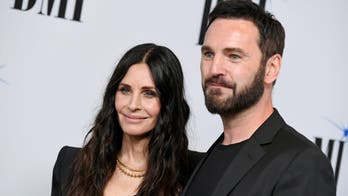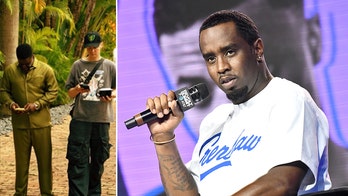LOS ANGLES – As America's presence in Iraq and Afghanistan winds down, military servicemen and women who come home are increasingly trying their hand at a very different kind of shooting: in and around the lights and cameras of Hollywood.
"I've always had a love for film and even made movies while in the Army,” said Kyle Hausmann-Stokes, a former paratrooper who now directs commercials and public service announcements. “I would film our jumps and cut the footage in my tiny cement barracks room. In Iraq, I would stick cameras inside and outside my Humvee and interview locals.
"But like so many returning vets, I deeply missed the culture and community of the military."
He wasn't alone. With more veterans seeking work in show business, Hausmann-Stokes and Mike Dowling, a Marine K9 dog handler-turned-actor, founded Veterans in Film & Television (VFT) two years ago.
The nonprofit, L.A.-based networking organization is both a resource for industry folks looking to hire veterans and a place for veterans seeking to support each other.
"VFT comes together to help people, instead of all the backstabbing and everyone being only out for themselves," said Dave Meadows, a former Navy SEAL who left active duty in 2009 and, on a whim, took his first acting class the following year.
Last year Meadows auditioned for the acting program at the Juilliard School and became the first Special Forces veteran to get to the top 20 out of 10,000 hopefuls. While he didn’t make the final cut of 16, he went on to train with an array of high-profile theater schools. He’s learned the hard way that this "team" environment is a far cry from what he was accustomed to with the SEALs.
"Censoring yourself while being free as an actor has been a challenge,” Meadows said. “This is a much more politically correct world, and (acting students) often aren't used to that much aggression."
He said that during an acting course last summer, he was encouraged by the teacher to not "hold back" during an anger exercise, and he ended up ripping a file cabinet in half.
Meadows said executives and professionals in the business have been very receptive to his military background, but some of his fellow acting students haven't been so warm.
"I met so many people that have claimed to be open-minded, yet couldn't be more opposite,” he said. “But others have since come with me skydiving, and some wanted to learn how to handle guns and learn basic hand-to-hand combat skills. They just had never known someone who could do those things."
As for getting jobs, many veterans say things are looking up in Hollywood, and some say the military and movies have a lot in common.
"Most of the skills I am able to use in my new profession have to do with accountability and teamwork,” said model/actress Kelli Serio, a former Navy enlisted quartermaster. “And I'm used to working long hours. The dynamics of the film industry are very similar to the way the military operates. I feel privileged and ahead of the game in many ways."
Said former SEAL Joel Lambert, "When I first moved here five years ago, everyone liked the idea of hiring veterans, but no one really wanted to take the chance and do it. Over the last few years, that has changed quite a bit, and I am grateful for that.”
Lambert heard about a casting through a VFT event and ended up scoring his own Discovery Channel escape docu-series called "Lone Target" in the U.S and "Manhunt" internationally.
“I did quite a bit of acting growing up,” Lambert said. “I got back into it as a means to reconnect the wiring harnesses in me that weren't quite locked together. Allowing your emotions to be close to the surface just ... goes away in the military."
Gulf War Army veteran Tim Norman, director of overhead and technology recruiting at DreamWorks Animation and a VFT board member, agreed that the entertainment industry has become particularly receptive to hiring veterans.
But he said the fears and misconceptions about Post Traumatic Stress Disorder (PTSD) remain tough issues for some employers.
"As a whole, nationally, we do a poor job messaging and educating employers on veteran PTSD and other very serious issues that affect some of our veterans,” Norman said.
“With the messaging that we all influence and contribute to, it seems to me that employers have almost no other choice than to see vets as 'wounded' or somehow disadvantaged. Fortunately, I work for a company that at every step of the way has supported and facilitated veteran hiring and outreach."
Vietnam-era Infantry Officer Tucker Smallwood, who has appeared in productions that include "Friends," "Seinfeld," "The X-Files" and "Star Trek: Voyager," said working in Hollywood for more than 40 years has given him not only an opportunity to sharpen his military skills of "initiative, leadership, decisiveness and diligence," but a platform to keep serving and helping others.
"My decision to go to Hollywood was not a practical decision, but it made sense for someone not expected to live much longer,” he said.
“I came home in 1969 and did well for 10 years before descending into depression of PTSD and survivor guilt in 1980.
“I finally asked for help in 1988. Since that time I have used my minor celebrity to advocate for understanding and treatment for PTSD. I fell in love with the process (of acting); it turned out to be very productive therapy for someone as closed down and traumatized as I had become."
Follow @holliesmckay on Twitter
Published
|
Updated






